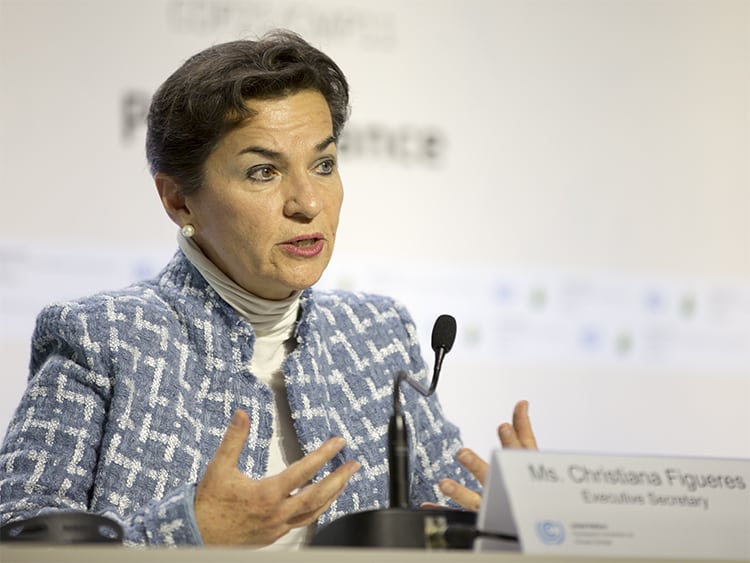
The Paris climate change agreement is likely to come into force years earlier than anticipated, Christiana Figueres, executive secretary of the United Nations Framework Convention on Climate Change, said Monday. “I think that we will have the Paris Agreement in effect by 2018, two years before it was originally intended to go into [effect],” Figueres said in a lecture at the Grantham Institute at the Imperial College London.
The Paris Agreement opens for signature on April 22 and will come into force 30 days after 55 parties of the United Nations Framework Convention on Climate Change representing at least 55 percent of the world’s emissions have signed and deposited their domestic instruments of ratification, acceptance, approval, or accession. Currently, 130 countries have said they will send delegates to the signing ceremony in New York, and 10 whose governments allow the ratification of treaties before official signature have committed to signing the agreement and submitting their ratification documents. The U.S., China, India, and Canada have all committed to signing the agreement on the first day of availability. These four countries together account for roughly 44 percent of the word’s emissions.
The agreement, which establishes a legal framework under which countries are to take nationally determined actions to address climate change, was initially intended to come into force in 2020, upon the expiration of the Kyoto Protocol. If the agreement comes into force early it will cause a headache for lawyers, Figueres said, explaining that both the Paris Agreement and the Kyoto Protocol would be in effect at the same time. Legal headaches aside, the agreement coming into force early would buy the world more time to address the problem of climate change.
Time is of the essence, Figueres stressed. “[It is] fantastic that we got to the Paris Agreement. If you ask me the Paris Agreement is 10 years too late,” she said, later noting that “had we had the international regulatory framework, we probably could have accelerated policy … and we would have had a little bit more breathing time. We just don’t have that breathing time.”
According to Figueres, to meet the agreement’s goal of keeping global temperature rise well below 2 degrees Celsius, the world will need to reach peak emissions no later than 2020. “That is not where we are right now. Our business as usual would have us peaking … somewhere in between 2025 and 2035.”
Putting the world on the correct path to lower emissions is the next great task. “We have a stark choice in front of us. Paris points in one direction, but that is only a blueprint … that was the easy part. Now we come to the difficult part because now we have to be intentional about everything that we do, about every investment that we do, about everything in our daily lives. We need to be intentional about the choices that we’re making,” Figueres said.